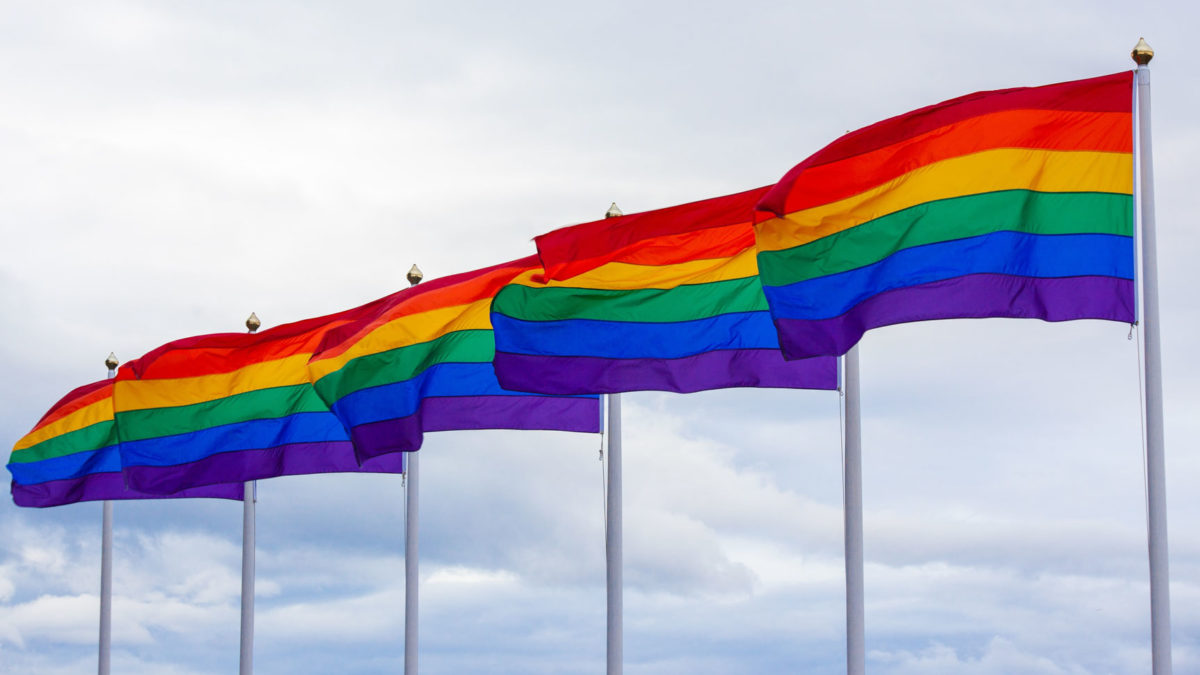Yesterday, the Supreme Court announced its decision in Fulton County v. City of Philadelphia, a case challenging whether the city of Philadelphia could refuse to work with a Catholic adoption agency that discriminates against prospective LGBTQ+ parents.
Catholic Social Services (CSS) sued the city after it refused to refer prospective parents to the agency on the grounds of its discriminatory actions toward LGBTQ+ people. But in a 9-0 decision, the court ruled that Philadelphia was in the wrong.
“The refusal of Philadelphia to contract with CSS for the provision of foster care services unless CSS agrees to certify same-sex couples as foster parents violates the Free Exercise Clause of the First Amendment,” wrote Chief Justice John Roberts, who authored the decision.
“Under the circumstances here, the City does not have a compelling interest in refusing to contract with CSS. CSS seeks only an accommodation that will allow it to continue serving the children of Philadelphia in a manner consistent with its religious beliefs; it does not seek to impose those beliefs on anyone else.”
The decision said the Philadelphia government failed “to act neutrally” because it acted “in a manner intolerant of religious beliefs.”
So what does this mean?
“In essence, today’s decision creates a carve out for existing protections for LGBTQ people,” explained LGBTQ Nation. “Combined with the Masterpiece Cakeshop decision of 2018, which sided with a baker who refused to bake a cake for a same-sex wedding, the conservative justices have made it clear that the rights of LGBTQ people are subject to exemptions – an extraordinary legal doctrine in the eyes of many legal experts.”
“The only question was whether the justices would go for a sweeping ruling or opt for a slower erosion of LGBTQ protections,” LGBTQ Nation continued. “In this case, they chose a narrow approach that focused on other exemptions the city of Philadelphia was willing to grant, but still elevated religious beliefs over civil rights protections.”
At the heart of the Fulton v. City of Philadelphia case are the LGBTQ+ ppl who yearn to care for children & the thousands of kids in the foster care system who deserve a loving home. Watch our sr. attorney @sashabuchert break down today’s #SCOTUS decision on @thereidout @MSNBC pic.twitter.com/Q74ZNQbBce
— Lambda Legal (@LambdaLegal) June 18, 2021
The narrow nature of the ruling means that “the immediate impact is fairly muted,” Anthony Michael Kreis, an assistant law professor at Georgia State University, told Bloomberg. “The bigger fights about religious rights and LGBTQ people have been punted down the road for another day. Those fights will continue.”
“Importantly, the court did not rule (as the agency asked) that there is a constitutional right for government contractors such as the foster care agency to discriminate in their work for the city based on religious beliefs,” the ACLU explained on its website. “This means that governments can and should continue to enforce their non-discrimination laws in all contexts.”
So, while the decision was certainly a setback for LGBTQ+ rights, it also wasn’t the great loss it could have been. The ruling only applied to the specific contract between Philadelphia and CSS, rather than making any broader claims about religious freedom.
As the Human Rights Campaign explained on Twitter, “SCOTUS did not rule that there is a First Amendment right to turn away same-sex couples. SCOTUS ruled, in one single case in Fulton, that Philadelphia did not apply the law in a neutral, generally applicable way because a commissioner had sole discretion to issue exemptions…To be clear, non-discrimination laws are enforceable against all, as long as those laws are enforced in a neutral and generally applicable way.”
That said, today's news is a reminder that we still have further to go to ensure that LGBTQ people, women, people of color, and even people of faith are explicitly protected from discrimination under the law.
— Human Rights Campaign (@HRC) June 17, 2021
The ruling could, however, set dangerous precedent for other similar lawsuits that could come down the pipeline. As such, LGBTQ activists continue to push for the Equality Act, which would provide sweeping federal protections for the LGBTQ community.
“This ruling shows that the first amendment works to protect people of faith and no new laws are needed in that regard,” Jeff Graham, Executive Director of Georgia Equality, said in a statement.
“However, what it does show is that we need to pass greater protections such as the federal Equality Act to it make clear that there is no place for discrimination against members of the LGBT community.”
Critics of the Supreme Court's ruling in Fulton v. City of Philadelphia say it will embolden other religious social services providers to discriminate, while others say its impact will be muted. https://t.co/3c2eya4TcP via @JoYurcaba
— NBC Out (@NBCOUT) June 18, 2021






























